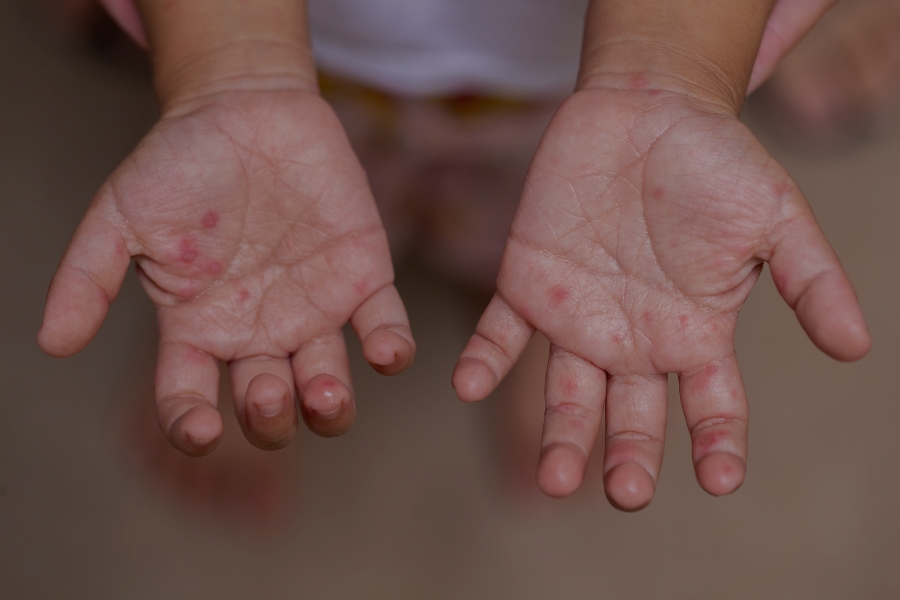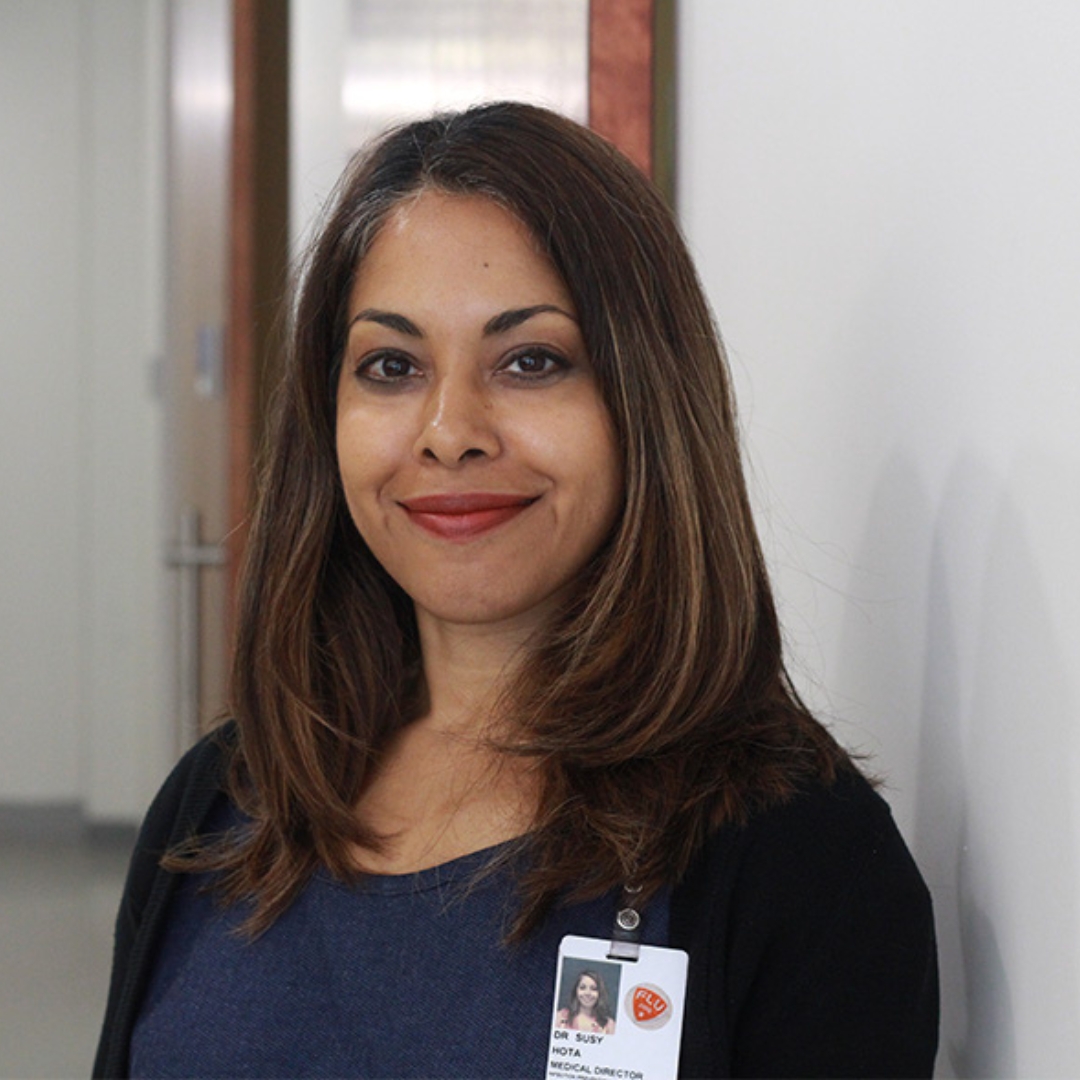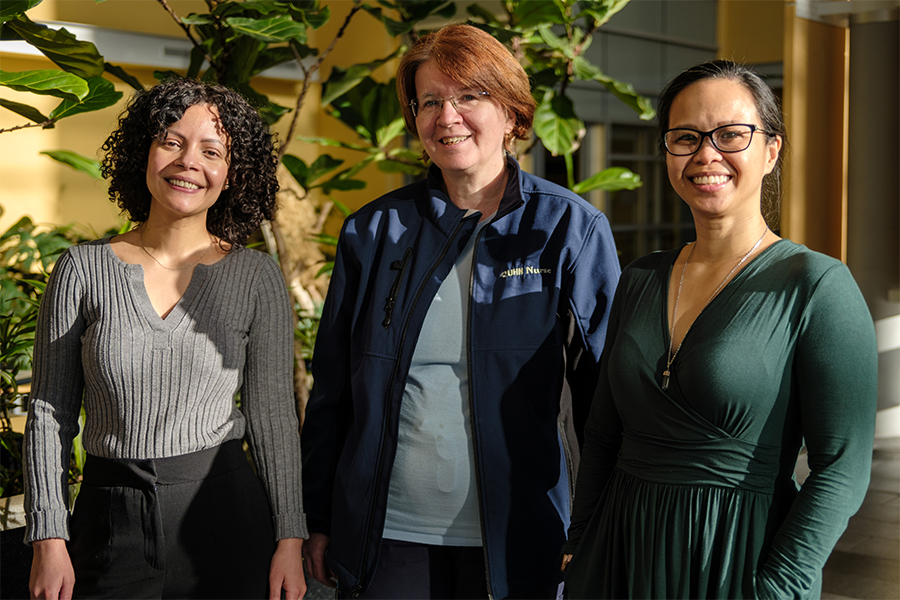
Measles is on the rise in Canada and around the world. According to the World Health Organization, in 2023 there was a 79 per cent increase in the global number of measles cases compared to 2022. In Canada, the number of cases this year already almost exceeds the total number of cases in 2023, which was already a higher-than-average year for infections.
We talked to Dr. Susy Hota, Division Head of Infectious Diseases at University Health Network (UHN) and Sinai Health, and Medical Director of Infection Prevention and Control at UHN, to learn more about measles and what you can do to protect yourself and your family.

1. What is measles?
Measles is a highly contagious, serious illness – one of the most contagious illnesses in the world. It is caused by the measles virus, and spreads via breathing, coughing or sneezing. The virus remains active and contagious in the air for up to two hours.
While it is often thought of as a childhood illness, measles can affect people of any age who don’t have immunity. Globally, it is one of the leading vaccine-preventable causes of death.
Measles can lead to dangerous complications including pneumonia and encephalitis.
“Many people feel that measles is a benign illness,” says Dr. Hota. “It’s common to hear that most children born before 1970 – prior to routine roll out of a highly-effective vaccine – got infected with measles and recovered without incident. While this is true for the majority, it is important to understand that one in 20 children with measles get pneumonia and one in 1000 experience encephalitis, which can result in hearing loss, seizures or intellectual impairment. Furthermore, one to three in 1000 people who get measles will die from respiratory or neurologic complications. Finally, if pregnant women get infected with measles, their babies may be born prematurely or with low birthweights.”
2. What are the symptoms and what should you do if you think you have measles?
The initial symptoms of measles are similar to many other illnesses – including cough, fever and a runny nose. Some people develop small white spots inside their cheeks. A week or more after exposure, people develop a characteristic red, blotchy rash, which usually begins on the face before spreading downward over the rest of the body.
According to Dr. Hota, “If you think you have measles, it is important to get medical attention. You should call the clinic or emergency department in advance to let them know that you are coming with a concern about measles infection. That way they can ensure that you’re properly isolated and other vulnerable people around you are not going to get exposed.”
3. Why is measles in the news?
Measles is preventable through a highly effective vaccine. Canada officially eliminated measles in 1998 due to widespread vaccination. Since then, cases of measles in Canada have historically been mostly related to travel to countries where measles is endemic.
However, immunization rates for measles in Canada have dropped. Survey data from 2021, which is the most recent available, shows that 92 per cent of children around the age of two have received their first dose, but fewer than 80 per cent have received the second dose.
Because of how contagious measles is, 95 per cent of the population must be immunized to achieve “herd immunity” – when enough of a population has immunity to the disease to provide protection for people who cannot mount an immune response or who are especially vulnerable.
“There are always people who cannot receive the measles vaccine, because it is a live vaccine. This includes people who are immunosuppressed or pregnant. Infants and young children may also be susceptible if they have not yet reached an age for vaccination or are partially vaccinated,” says Dr. Hota.
Lower vaccination rates have opened the door for a resurgence of measles in Canada, putting people without immunity to the disease at a heightened risk of infection.
“Because measles is so highly contagious, small numbers can balloon into an outbreak quickly. This is especially true if vaccination rates decline, as they have in recent years,” says Dr. Hota. “We need to have as many eligible people vaccinated as possible in order to indirectly protect vulnerable people.”
There have already been more reported cases of measles in the first three months of 2024 than in the entirety of last year. Public health experts are sounding the alarm about the growing risk of significant outbreaks, and the need to act now to stop the spread of this highly contagious disease.
4. Are you still at risk if you don’t plan on traveling?
Even if you do not travel, you could potentially come into contact with people who have contracted measles abroad. As people begin traveling more throughout the spring and summer, this will raise the risk that you may come into contact with someone who has returned from an area with higher levels of measles activity.
As cases rise globally and vaccination rates decrease in Canada, there is another growing risk. There have been some instances of presumed local transmission within Canada. In some cases, the individual’s infection can’t be traced back to another known case or source of infection.
You could be at risk for measles infection even if you do not travel from contact with others who contracted the disease while traveling, or potentially through community transmission.
5. What does “fully vaccinated” against measles mean?
Fully vaccinated means you have received both shots of the measles vaccine, which provides protection against measles for more than 98 per cent of people. A single shot provides 85-90 per cent protection, so it is advisable that people get both shots to get the maximum protective benefit.
6. How do you know if you have been vaccinated?
If you cannot find a record of your measles vaccination, you can ask a parent, caregiver or sibling about your vaccination status. You may be able to trace vaccination records through your doctor’s office.
There is also a simple blood test that can tell you if you have immunity to measles. Talk to your doctor for more information about how you can access this testing.

No one ever changed the world on their own but when the bright minds at UHN work together with donors we can redefine the world of health care together.



